Reputational risk, and specifically, online reputational risk, are serious concerns for hospitality businesses. At any moment, you can check the news and find an establishment that has gone viral, the scathing reviews left by non-customers—even those living thousands of miles away—and only begin to imagine what this would be like if it were your business.
Using these tips and tricks, you can see how vulnerable your hospitality business is to reputational risk, how easily your online reputation can be destroyed, and what you should do to protect yourself.
With 87% of the population reading reviews before using a service or buying a product, you need to consider reputational management today.
Plan for Reputational Damage
When you are thinking of your online reputation or hearsay in the community, you must plan ahead. Every business owner or manager should assume that they might confront a major challenge to their reputation at any time. Yes, you may be beloved in the community or making money online in multitudes, but that doesn’t mean that one angry customer can’t take down your business with a viral post, comment, or review.
In short, your public reputation is fragile.
Aside from simply assuming that something could happen, you should be aware of the warning signs, carry the appropriate insurance, and remain in contact with our insurance agents. If you have a question about your policy or what you should purchase, you need to know the answer as soon as possible.
Additionally, you should create a list of warning signs and corresponding responses to those warning signs. For example, you begin to notice your facility is not as clean as it normally is. Instead of waiting for consumer complaints, you should work with your staff to correct the problem right away. Proactive customer service also helps. For example, a customer goes home with a poorly prepared order—reach out to them so that you can correct the problem instead of assuming they won’t say anything or simply come back to get the dish replaced. Recovering from reputational damage is much harder than simply reaching out and admitting you were in the wrong.
Oftentimes, hospitality businesses fail due to their lack of attention more than anything.
Standardize Your Workflow
Standardizing your workflow will help reduce errors and offer a better customer experience. While this may seem regimented or almost like micromanagement, a hospitality business interacts directly with the customer in an intimate setting. You are often serving food and drinks to the consumer, and a list of steps for everyone to follow is helpful.
Yes, you can complete a reputational risk analysis with help from our staff, but you still need to think ahead and stop problems before they start.
Moreover, you should post a list of steps to take when errors occur. For example, a pan catches fire in the kitchen. Your staff should be trained to put the fire out with an extinguisher, throw away all food prepared in the vicinity, and remake that dish. Taking this extra step teaches your staff to exercise caution when serving guests.
Above all else, these standards demonstrate that your business cares about its customers and takes their safety and satisfaction seriously. Without these guidelines, your reputation could suffer.
Look Into Anything That Impacts Public Opinion
Don’t be afraid to address anything that could impact your company’s reputation. Train your staff properly, supply them with the appropriate equipment, and ensure that the chain of command is honored at all times.
Plus, you must urge your staff to take swift action in the event of any issue, concern, or emergency. The public appreciates when your staff takes swift action and knows what to do in any given situation. Even if your staff must refer to instructions you have provided for specific situations, that is better than leaving them to their own devices. If a commercial pilot must use a checklist to land a plane, your staff can use a checklist to make a chicken pot pie.
Check In With Stakeholder Expectations
If you’re unsure of what the public wants or needs—ask. There’s nothing wrong with surveying the public, asking questions of your current guests, or sending surveys via email, text, etc.
Instead of assuming that you know what the public wants, it helps to check in with current expectations. For example, older businesses may have transitioned from time to time due to enhanced technology, and you need to know what consumers expect of you now that you have a modern cash register, online order system, mobile app, etc.
Also, speak to your employees about what they hear from the public. Oftentimes, your employees know exactly what should be done to repair or mitigate reputation issues because they hear about it all the time.
Focus on Positive Communication
As a business owner or manager, you should focus on being positive. The general public expects you to be positive. Your employees have a reasonable expectation that you will remain positive when interacting with them, and your suppliers, partners, wholesalers, etc. likely feel the same way.
Yes, your public reputation could be easily harmed if you have a tendency to “go negative” or allow for negative interactions during the workday. While this oversimplifies the situation, most customers availing themselves of the wares of the hospitality industry would be mortified if they heard Gordon Ramsey barking in the kitchen.
Contact HomePort Insurance for Help Managing Reputational Risk
You can contact HomePort Insurance today when you’re ready to invest in reputational risk management and our accompanying insurance policies. Now that you know how to positively impact your online reputation or public perception, our insurance agents can customize policies that meet you where you are.




